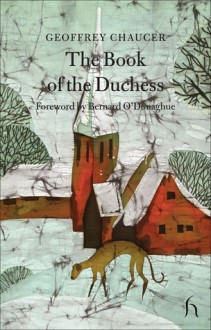The earliest of Chaucer’s major works, this charming and absorbing dream-poem is traditionally read as an allegorical elegy for Blanche of Lancaster, John of Gaunt’s first wife. A sleepless poet lies in his bed, reading the legend of Ceyx and Alcyone, wishing that he might be granted rest. He...
show more
The earliest of Chaucer’s major works, this charming and absorbing dream-poem is traditionally read as an allegorical elegy for Blanche of Lancaster, John of Gaunt’s first wife. A sleepless poet lies in his bed, reading the legend of Ceyx and Alcyone, wishing that he might be granted rest. He finally falls asleep, only to have a beautiful vision. Dreaming himself in a chamber with stained glass windows that portray the tale of Troy, the poet hears the sound of a hunting party, which he hurries to join. When the hunt disbands, he follows a small dog into a forest, where he meets a black knight, mourning the loss of his love. The poet cannot understand the exact nature of the knight’s grief until the very end of his dream, when he wakes, book still in hand. Reluctant to forget such a wonderful dream, he determines to put it down in verse.
show less

